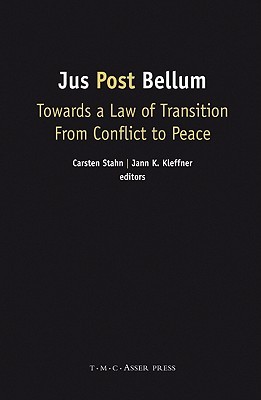
- We will send in 10–14 business days.
- Publisher: T.M.C. Asser Press
- Year: 2008
- Pages: 241
- ISBN-10: 9067042722
- ISBN-13: 9789067042727
- Format: 16.5 x 24.4 x 2 cm, hardcover
- Language: English
- SAVE -10% with code: EXTRA
Jus Post Bellum (e-book) (used book) | bookbook.eu
Reviews
Description
Warfare is usually theorised in the categories of jus ad bellum (justification for recourse to force) and jus in bello (rules applicable in armed conflict). The challenge of establishing fair and sustainable peace after conflict (jus post bellum) has received less attention in existing law and practice, although it has an established tradition in just war theory. This book sheds a fresh light on the use and relevance of the concept of jus post bellum in contemporary international law and policy. It examines the origins and foundations of the concept from an inter-disciplinary perspective. Moreover, it identifies some of the features and challenges of a framework governing transitions from conflict to peace, such as the treatment of sovereignty, accountability and local ownership, the relationship of jus post bellum to jus ad bellum and jus in bello and the role of human rights law and transitional justice.
EXTRA 10 % discount with code: EXTRA
The promotion ends in 20d.09:18:35
The discount code is valid when purchasing from 10 €. Discounts do not stack.
- Publisher: T.M.C. Asser Press
- Year: 2008
- Pages: 241
- ISBN-10: 9067042722
- ISBN-13: 9789067042727
- Format: 16.5 x 24.4 x 2 cm, hardcover
- Language: English English
Warfare is usually theorised in the categories of jus ad bellum (justification for recourse to force) and jus in bello (rules applicable in armed conflict). The challenge of establishing fair and sustainable peace after conflict (jus post bellum) has received less attention in existing law and practice, although it has an established tradition in just war theory. This book sheds a fresh light on the use and relevance of the concept of jus post bellum in contemporary international law and policy. It examines the origins and foundations of the concept from an inter-disciplinary perspective. Moreover, it identifies some of the features and challenges of a framework governing transitions from conflict to peace, such as the treatment of sovereignty, accountability and local ownership, the relationship of jus post bellum to jus ad bellum and jus in bello and the role of human rights law and transitional justice.


Reviews